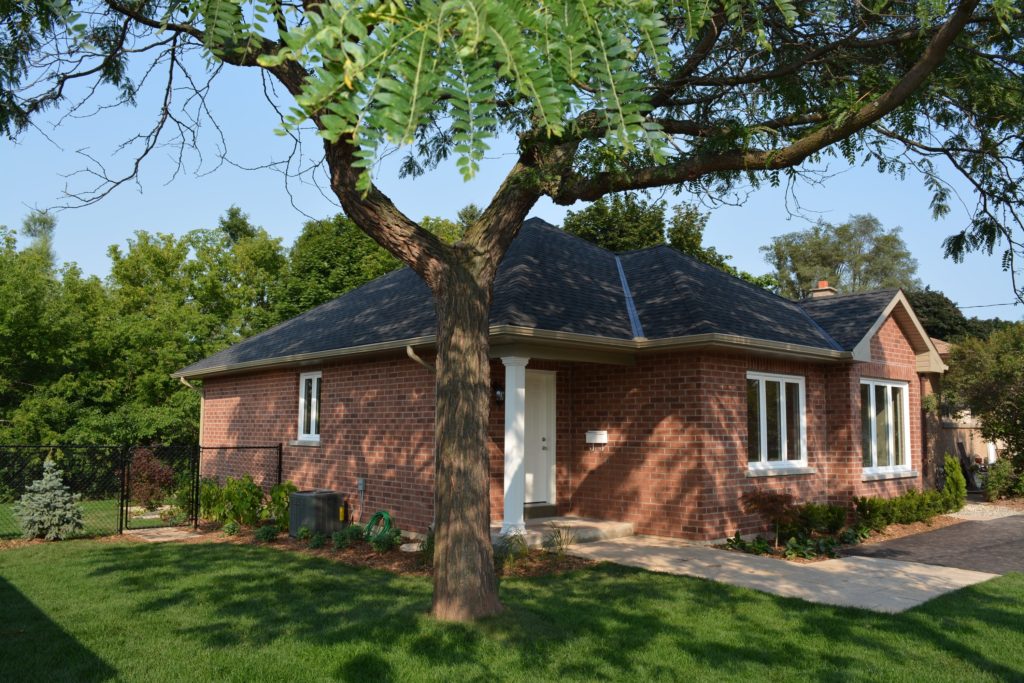Here at Habitat for Humanity Halton-Mississauga, we seek to provide affordable housing for all members of our community. This means serving people who are sometimes left out of housing discussions or whose needs aren’t always addressed in conversations by local governments and members of the social housing sector.
In 2016, one in five Indigenous peoples lived in a dwelling in need of major repairs, according to Statistics Canada. Indigenous peoples living on-reserve are more likely to live in a dwelling in need of major repairs. Another issue is overcrowding. In 2016, 18.3 per cent of Indigenous peoples lived in housing that was crowded. Furthermore, the National First Nations Housing Strategy notes that many First Nations communities have homes with mould in them. This has negative health impacts, especially for children.
Indigenous communities face particular challenges in building houses since many are located in Northern Canada and remote areas where it can be more complicated and expensive to transport building materials. Harsh winter conditions and extreme weather events such as flooding or tornadoes can create further obstacles for construction in these communities.
Canada’s National Housing Strategy addresses the need for Northern housing. The federal government’s $40 billion investment in housing includes $300 million to “help approximately 3,000 Northern families find an adequate, suitable and affordable place to call home,” according to the strategy.
However, at more local levels, the need for adequate housing for Indigenous peoples is not always recognized as clearly in government documents. Halton Region’s Comprehensive Housing Strategy for 2014-2025 sets out the goal to “build complete and healthy communities … to meet the needs of all Halton residents.” However, it does not specifically mention Indigenous peoples, nor other communities in need of adequate housing such as women and children fleeing abusive relationships and people with disabilities.
Although we realize that meeting the needs of Indigenous peoples may be part of a wider strategy from local governments, we feel that we can play an important role in partnering with Indigenous organizations to pave the way for more affordable housing developments.
The need for Indigenous housing is an area where we at Habitat for Humanity are looking to contribute our construction knowledge and resources. Habitat Canada launched its Indigenous Housing Program in 2007, and at Habitat Halton-Mississauga we’re hoping to work with Indigenous families and organizations right here in our community.
Our country’s history surrounding the relationship between social services and Indigenous communities is one rooted in colonialism and oppression. Our hope is not to come in as experts but as partners; to bring our resources and construction skills to the table and ensure that every community can be part of the vital conversation surrounding the wide-ranging need for affordable housing. We want to respect the land, traditions and culture of Indigenous communities throughout the construction process, and hear the voices of Indigenous communities throughout our partnership.
We are conscious of the history of social workers taking Indigenous children away from their families, and it is important to us to work with Indigenous communities to respect their land, traditions and knowledge throughout the construction process. We would like to offer our resources and construction skills to collaborate to meet the needs of Indigenous peoples through renovating or building affordable housing units.
If you are part of an Indigenous programming organization stationed in Halton or Mississauga and wish to learn more about Habitat’s partnership model or family selection process, reach out as well. We would love to hear from you and find a way to work together to create tangible housing solutions for people in our community.
To learn more about the work that Habitat Halton-Mississauga is doing in your community, visit our website.

